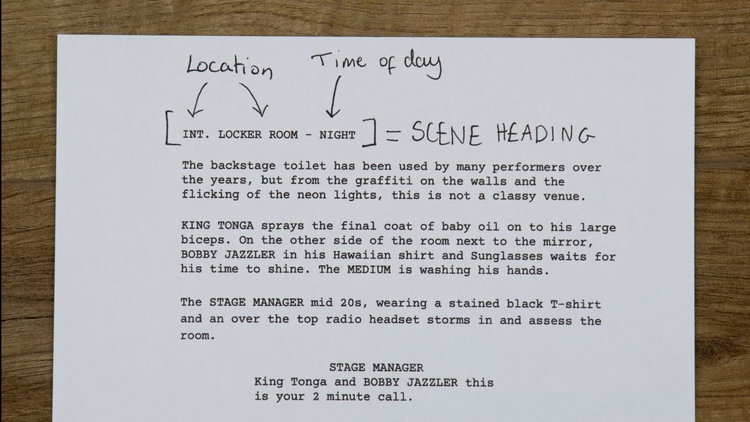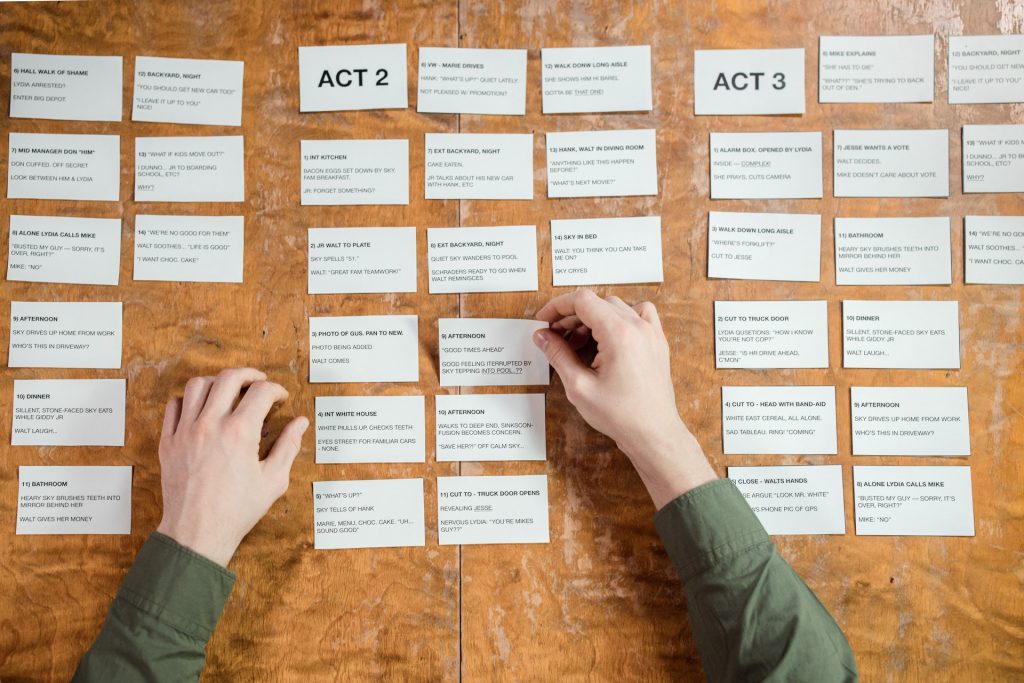Screenplay writing can be intimidating and time-consuming as it has a lot of details and depth to it. Besides, while writing the screenplay, knowing how to build characters and building a strong and tangible relationship between the audience and the story is indeed an art. To perfectly write a screenplay, you do not only need qualified writing skills but also a great imagination power. For that reason, we have dived deep to make a perfect step-by-step guide for you to learn how to write a perfect screenplay.
If you need a writer to help you write your essays or any type of paper, you can hire a professional writer to help you save time.
How to Write a Perfect Screenplay – A Step by Step Guide
Writing itself is an art because you need your reader to comprehend and visualize everything you have imagined. Therefore, writing a perfect screenplay is highly important. Before you start writing your screenplay, there are some terms that we recommend every screenwriter to know about.
- Scene Heading: A scene heading always appears at the top of a new scene and it includes information such as time of the day, the location, and “INT” (interior) or “EXT” (exterior). For instance, “EXT White House – Establishing – 1960 – Night”.
- Action Line: It tells us about what a character is doing in a specific scene.
- Voice Over: It is a piece of narration in a movie not performed by the actor itself but by somebody else.
- Transition: It is a cut to show either a scene is ended or beginning.
- Parenthetical: It is a short description of how the lines are to be delivered.
If you have been able to clearly understand the terms, you are ready to follow the steps below and write your perfect screenplay.
Step 01: Write Logline
A sentence that can coherently describe the question “what is the story about?” is called the logline. Tough, your logline can change while you are drafting your screenplay, it is highly helpful to have a basic idea about what idea actually your play focuses on. So, to write a logline, try to answer the following question and take notes.
- How does your leading character gets involved in your story?
- What conflicts can stand up to challenge your leading character and how does it move your story ahead?
- What is the strength of your story?
- And what can make your story different, suspenseful, or amusing?
So, you should try to go through each question and take thorough notes. Then, put your answers together and summarize them into 40 to 50 words which could describe the main idea of your whole story without any difficulty. However, it is important to remember that your logline should not give any spoilers about the movie. Moreover, an example has been given below to help you understand how to write a logline.
“After a young man is murdered, his spirit stays behind to warn his lover of impending danger, with the help of a reluctant psychic.”

Step 02: Make an Outline
Once you have made your logline, it is time to start making the outline of your screenplay. You can do so by just writing down the main events in your play on a piece of paper or you can write down events and lines on index cards to make it easier to manipulate the parts of the play.
Moreover, it is important that the events should be singles sentences. For instance, “John gets hit by the car”.

Step 03: Build a Treatment
The Treatment is a tool used to represent the idea of your story or film before you start writing your entire screenplay. It is always written in the present tense, in a narrative style, and highlights the important aspects of your film such as the logline, summary, and characters’ description.
Though there is no specified length for treatment, treatment should be able to explain and tell the story idea without going into the depth and details.
Step 04: Write the Screenplay
Once you have your treatment ready and you are happy with it, it is the best time to start writing your screenplay. This stage is the hard work demanding and time-consuming among all the steps of writing a perfect screenplay. Because writing the screenplay is the core of a perfect film.
A screenplay is a document that includes everything including the location, characters, dialogues, and everything else which is heard or seen in a movie. Basically, it should tell a story. Initially, you can draft a number of screenplays until your final product is ready. Meanwhile, do not try to do a lot of editing and just let your ideas flow.

Step 05: Finally, Edit and Format the Screenplay
Now that you have written your screenplay, you are good to start editing and formatting it. In the editing process, your main goal is to bring clarity to your screenplay. So, while editing, try to read the screenplay from the second person’s point of view and as someone who has not read it before. Do not concentrate on perfection and be genuinely open to criticism and errors.
Moreover, you can also ask someone else to go through your screenplay and give their honest opinions. In a nutshell, while editing, try to look for areas you want to improve and highlight them.
To format your screenplay, you can look for screenplay templates on the internet. Else, you can also get the advantage of a screenplay writing software that automatically arranges your script into a fine screenplay format.
You might also be interested in:
- 100+ Written Anchoring Script in English | Compèring Script For Different Programs
- How to avoid plagiarism in a research paper?
- Write a Business Proposal in English – A Step by Step Guide
- How to Write a Debate Speech in English | Format, and Examples

